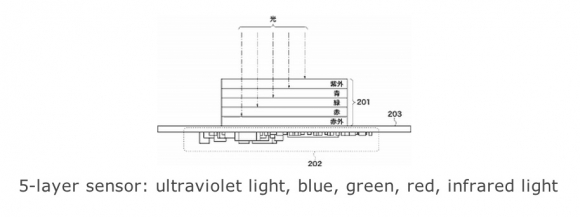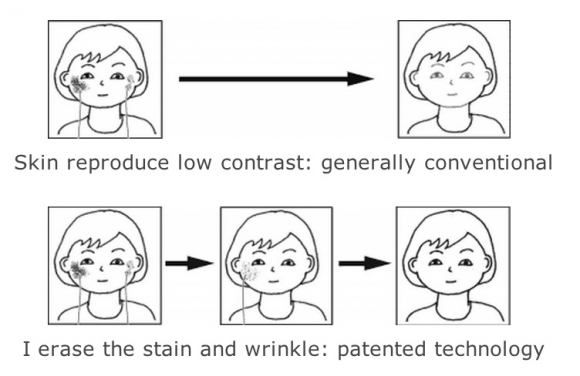Canon patents a Foveon-like five layer sensor with UV and IR sensitivity
posted Monday, June 30, 2014 at 12:47 PM EST

News from the world of imaging sensors, and these couldn't get much stranger. Apparently, Canon is working on a multi-layered sensor not unlike the three layer Foveon sensor inside Sigma cameras, but Canon's version includes two additional layers that are sensitive for ultraviolet and infrared light respectively.
It's not the first time that another company tries itself at imitating classic chemical film the way Foveon did with its X3 sensor, but this attempt is unique altogether. Instead of capturing red, green and blue wavelengths exclusively -- like chemical film did, and like most modern sensors do -- the patent describes a sensor that also captures light usually invisible to the human eye, at both ends of the visible light spectrum.

Now before you raise your eyebrows in suspicion, let us elaborate a bit. From the quirky machine translation of the original Japanese text over at Egami, who published the patent, it does not appear that Canon actually wants to make the UV and IR information gathered visible in the resulting images. So don't worry, this will not be another Leica M8 that requires you to slap IR cut filters onto your lenses.
Instead, it appears that the goal is to use the additional information gathered from UV and IR wavelengths to enhance skin tones -- now this surely is something that portrait photographers will be interested in. Judging from the graphics attached to the patent, the light otherwise invisible to the naked eye will be used to make skin look immaculate and to reduce wrinkles.

It is unclear as to how exactly this is going to be accomplished, but if you've ever used a Leica M8 without a IR filter in artificial light, you'll know that indeed infrared light has the effect of making skin appear much younger than it looks to the human eye. Should this technology make it into actual cameras, it could -- at least partially -- rid portrait photographers of a lot of post processing and Photoshop work.
(via Canon Rumors)